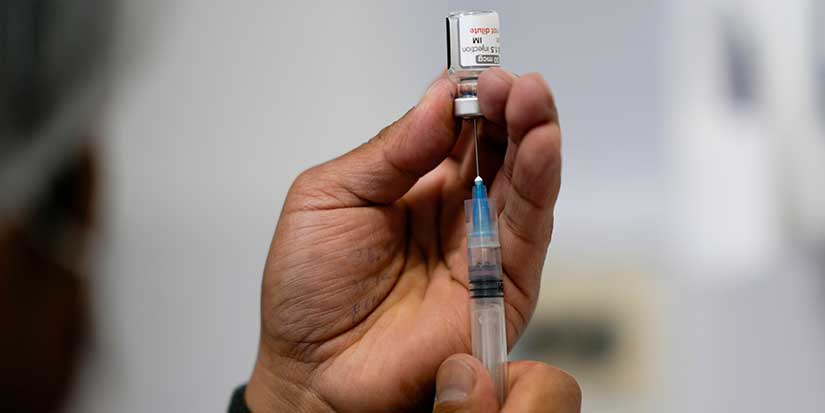Latest News
B.C. reports COVID-19 data from Oct. 9 to 15

Published 2:07 PDT, Thu October 20, 2022
—
In the past week (Oct. 9 to 15) there were 628 new COVID-19 cases reported in B.C., bringing the overall total to 386,920 since the pandemic began.
Of the new cases, 150 were in the Vancouver Coastal Health region (including Richmond), 175 in the Fraser Health region, 113 in the Island Health region, 123 in the Interior Health region, and 67 in the Northern Health region.
As of today, there are 389 people currently hospitalized with COVID-19 in B.C., 21 of whom are in critical care.
There were 174 new hospital admissions in the past week (Oct. 9 to 15). Of those, 48 were in the Vancouver Coastal Health region, 60 in the Fraser Health region, 25 in the Island Health region, 30 in the Interior Health region, and 11 in the Northern Health region. According to the B.C. Centre for Disease Control (BCCDC) report, these numbers are expected to increase as data become more complete.
The number of COVID-19 admissions in the previous week (Oct. 2 to 8) increased to 237 from the 181 originally reported last week.
There were 31 new critical care admissions in the past week (Oct. 9 to 15). Of those, four were in the Vancouver Coastal Health region, 12 in the Fraser Health region, three in the Island Health region, nine in the Interior Health region, and three in the Northern Health region. According to the B.C. Centre for Disease Control (BCCDC) report, these numbers are expected to increase as data become more complete.
The number of critical care admissions in the previous week (Oct. 2 to 8) increased to 42 from the 36 originally reported last week.
The 30-day all-cause mortality report, which includes COVID-19 and non-COVID-19 related deaths occurring within 30 days from a positive lab result, indicates there were 32 deaths between Oct. 9 and 15.
Of those who died, eight lived in the Vancouver Coastal Health region, seven in the Fraser Health region, seven in the Island Health region, eight in the Interior Health region, and two in the Northern Health region. According to the B.C. Centre for Disease Control (BCCDC) report, these numbers are expected to increase as data become more complete.
The number of COVID-19 deaths in the previous week (Oct. 2 to 8) increased to 44 from the 25 originally reported last week. Deaths the previous week (Sept. 25 to Oct. 1) remained the same at 36.
Locally, the latest data from the BCCDC indicates that there were 22 cases in Richmond last week (Oct. 9 to 15), up slightly from 21 the previous week (Oct. 2 to 8).
The B.C. Centre for Disease Control is combining surveillance reporting to include influenza, COVID-19, and other respiratory pathogens in one platform to better monitor trends throughout the respiratory season. COVID-19 data will now be available through an interactive data reporting platform (bccdc.ca/health-professionals/data-reports/respiratory-diseases).
Integrated surveillance will better guide B.C.’s understanding of the burden of respiratory illness and its outcomes, according to a news release from the Provincial Health Services Authority (PHSA).
Existing COVID-19 specific reports and dashboards will be accessed through the new respiratory diseases page including the:
• COVID-19 weekly report (provides recent data on COVID-19 cases, hospitalizations, and deaths)
• COVID-19 situation report (provides an in-depth look at COVID-19 epidemiology)
• COVID-19 dashboard
• COVID-19 epi app (interactive tool to visualize COVID-19 epidemiology in B.C. in comparison to other jurisdictions).
• Wastewater COVID-19 activity data
Interactive web pages will also provide:
• Laboratory testing data for respiratory pathogens such as influenza, RSV, enteroviruses/rhinoviruses, and others
• Visits to primary care and other community health settings for respiratory illnesses
More data, including visits to acute care settings, outbreaks in health care facilities, samples submitted through the Sentinel Practitioner Surveillance Network, and testing for antibodies in blood samples, will be added to the surveillance platform over the coming weeks and months.
As the new integrated surveillance platform will more accurately reflect respiratory illness patterns across the province, it will replace the map of COVID-19 cases by local health area. This shift also aligns with current guidance, which recommends testing primarily for people at the highest risk of severe illness, similar to testing practices for other respiratory diseases, according to the PHSA news release.
Going forward, people will be able to follow data from wastewater, MSP billing for visits to primary care and community health clinics, visits to emergency departments, and laboratory testing results for a greater number of illnesses.
Updates to other COVID-19 PDF reports and archived reports will continue to be available at bccdc.ca/covid19data.































